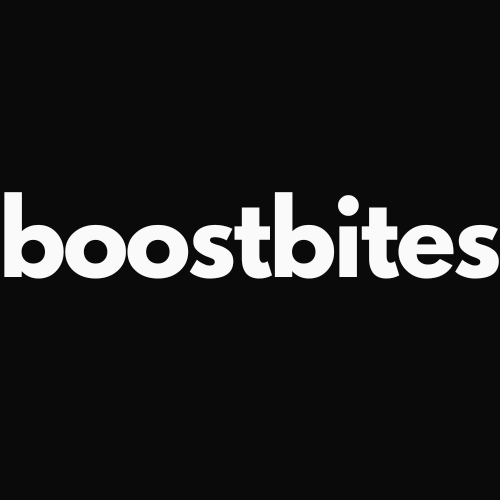Creatine is one of the most researched and effective supplements on the market - yet it’s also one of the most misunderstood. Despite decades of evidence supporting its safety and performance-enhancing benefits, myths about creatine persist across gyms, Reddit threads, and even some outdated articles.
You’ve heard them:
- “Creatine makes you fat.”
- “It’s only for bodybuilders.”
- “Creatine causes kidney damage, bloating, and even hair loss.”
This guide separates fact from fiction. We’ll break down what creatine actually does, what the science says about these claims, and how products like BoostBites creatine gummies deliver clean, safe, and consistent benefits - without the nonsense.
What Creatine Really Is (and What It Isn’t)
Creatine is a compound made of three amino acids - arginine, glycine, and methionine - naturally produced in your body and stored in your muscles as phosphocreatine. It plays a key role in regenerating ATP, the body’s main energy currency for high-intensity activity.
Used consistently, creatine:
- Boosts strength and training output
- Speeds up recovery
- Enhances lean muscle mass retention
- Supports cognition and neurological health
See the full breakdown in What Is Creatine?
Myth 1: Creatine Is a Steroid
Creatine is not a steroid. Steroids are synthetic hormones that mimic testosterone and alter hormone levels. Creatine is an amino-acid-based energy support molecule - more similar to a vitamin than a hormone.
- It doesn’t affect testosterone
- It doesn’t suppress your body’s natural systems
- It’s legally available over the counter in every major country
Myth 2: Creatine Causes Kidney Damage
This is perhaps the most persistent myth. In reality:
- Creatine has been studied in over 1,000 clinical trials
- Trials up to 5 years long show no negative effects on kidney function in healthy people
Creatine is filtered by the kidneys, which is why blood creatinine levels may rise slightly. But this is not a sign of kidney damage - just more creatine in the bloodstream.
If you have pre existing kidney issues, consult a doctor. Otherwise, creatine is safe.
Myth 3: Creatine Causes Bloating
Only if you load it - and even then, it's minor.
- Bloating is associated with high-dose loading phases (20g/day)
- Daily dosing of 4.5g/day, like in BoostBites creatine gummies, rarely causes visible water retention
And if it does occur, it’s intramuscular water - meaning muscles are hydrated and fuller, not puffier.
Full myth breakdown: Does Creatine Cause Water Retention?
Myth 4: Creatine Is Only for Men or Bodybuilders
No. Creatine supports performance, recovery, and cognition in everyone - including:
- Women
- Vegans and vegetarians
- Older adults
- Runners, HIIT users, and CrossFitters
Women, in particular, benefit from creatine’s role in supporting:
- Strength and lean mass
- Brain energy and focus
- Menstrual and perimenopausal energy dips
Explore Are Creatine Gummies Safe for Women? for more.
Myth 5: Creatine Needs to Be Cycled
Nope. Creatine doesn’t affect hormones or receptors. There’s no reason to “cycle off.” In fact, stopping creatine just lowers your muscle creatine stores over time.
- Daily use is safe and preferred
- No adaptation or desensitization occurs
- You don’t need to “reset” your system
More: Should You Load Creatine?
Myth 6: Creatine Causes Hair Loss
This one comes from a single small study on rugby players in 2009, which found an increase in DHT (a hormone associated with male-pattern baldness). But:
- No actual hair loss was measured
- The study has never been replicated
- Dozens of other studies show no link between creatine and hair loss
Myth 7: Creatine Is Dangerous for Teens or Women
False again.
- Creatine is safe for teenagers who engage in supervised athletic training
- Creatine is especially helpful for women, who often have lower baseline creatine stores
Creatine may help:
- Improve recovery from workouts
- Support cognitive performance in high-stress settings
- Preserve muscle during cutting, aging, or hormonal shifts
Why Gummies Make Creatine Safer, Cleaner, and Easier
BoostBites creatine gummies are designed to eliminate the variables that contribute to most of creatine’s “side effects”:
- No loading
- No over-scooping
- No gritty powder or shaker mess
- No sugar, no dyes, no fillers
Each gummy delivers 4.5g of creatine monohydrate - lab-tested and clean. They’re naturally flavored, vegan, and part of our full vegan creatine supplement collection.
Perfect for:
- Women
- Beginners
- Professionals
- Athletes who prioritize consistency and simplicity
Final Thoughts: Trust Science, Not Gym Myths
Creatine is safe. Creatine is effective. And creatine myths are mostly recycled internet nonsense.
By using a pre-dosed, consistent format like boostbites, you get:
- Full ATP regeneration support
- Improved training capacity
- Lean mass protection
- Zero bloating, zero guesswork, zero intimidation
Try BoostBites Creatine Gummies - the smarter way to supplement without the side-effect scare tactics.




